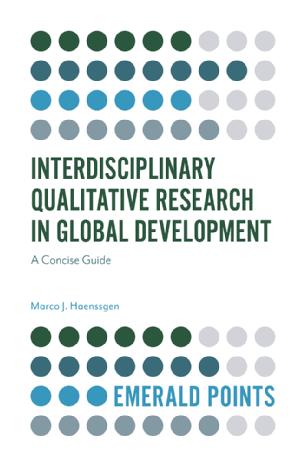Research News
Paper accepted for publication: Laughter in oral histories of displacement
Recently, the Head of School for Cross-faculty Studies Dr Stéphanie Panichelli-Batalla’s paper on laughter in oral histories of displacement was accepted for publication by The Oral History Review. The Oral History Review aims to explore the nature and significance of oral history and advance understanding of the field among scholars, educators, practitioners, and the general public.
Title: Laughter in oral histories of displacement: 'one goes on a mission to solve their problems'
Abstract
Although the use of humor and laughter in oral history has started to appear in oral history literature, it is still very much under-researched. Most of the studies analyze humor and laughter together, while Kate Moore focuses on laughter on its own. Humor and laughter, although linked, are two different concepts. While humor is a mental ability to perceive and/or express something funny, laughter on the other hand is a sound or a sequence of expirations, produced as the expression of an emotion, which can be set off by a humorous trigger, but not necessarily. It is therefore important to distinguish both. This paper will build on Moore’s study by exploring the use of unilateral laughter in eleven oral histories of exiled Cuban internationalist healthcare professionals. However, unlike Moore’s study, this research will not be limited to difficult memories. Our analysis will deepen our knowledge on the history of the Cuban global universal healthcare system by giving a voice to its participants, analyzing therefore, not solely the facts and statistics of the program but, as Portelli states, the meaning that its participants give to it when reflecting on their experience from the present. By exploring the occurrence of laughter, this paper intends to shed light on the relevance of focusing on unconscious reactions in oral history narratives, in order to better understand emotions linked to the narrated memories. The analysis will show that unilateral laughter is recurrent in the interviews when participants reflect on a change in their identity, the implications of working for a state program, and their need for respect of human dignity. It will highlight the impact the mission had on their personal and professional lives during and after their humanitarian experience. These stories of displacement will also show what Norrick has called the dual humorous perspective of the participants, but rather than solely referring to the time of the interview and age of the participants, we will also assert that another key factor to be taken into consideration is the situation of displacement as well as the degree of acculturation of the participants.
What does good research in global development look like?

Drawing on his ten years’ experience of interdisciplinary research work in Asia and Europe, Assistant Professor in Global Sustainable Development Dr Marco J Haenssgen’s new book is a practical introduction to qualitative research methods. Dr Haenssgen has designed this as a resource for students, researchers and research partners working on global development projects.
Published today, Interdisciplinary Qualitative Research in Global Development – a Concise Guide, contains a wealth of practical examples and resources to help students and practitioners think through what good research looks like. The guide highlights some of the practical and ethical challenges which can face teams drawn from different academic disciplines working on interdisciplinary issues.
New publication: What public engagement can learn from international development

Recently published in the interdisciplinary journal Global Health Action, Assistant Professor Dr Marco J Haenssgen in Global Sustainable Development discusses and exemplifies how common evaluation criteria used in international development aid can encourage more transparent and balanced assessments of public engagement with research.
New publications on fintech by GSD researcher
A recent special issue of Review of International Political Economy, co-edited by GSD Assistant Professor Nick Bernards, looks at the politics of emerging technologies in global finance.
New financial technologies ('fintech') have attracted growing media and policy attention in recent years, drawing both a good deal of hype about their potential benefits and concerns about the possibilities for abuse, surveillance, and instability created by new technologies. Despite this, there has remained little critical social science literature looking at the driving forces behind the promotion and adoption of fintech. This project aims to begin addressing that gap.
The issue includes eight articles touching on subjects including uses and abuses of Big Data in microcredit, digital technologies and remittances, platform lending, high-frequency trading and alternative credit data. Along with editing the collection, Dr. Bernards contributed a co-authored introductory article, and a sole-authored article on psychometric credit scoring and financial inclusion.
Free survey data set published by GSD Assistant Professor Marco J Haenssgen
A new social survey data set can be accessed free of charge for research and teaching to shine new light on antibiotic use, marginalisation, and rural treatment-seeking behaviour in Thailand and Laos. Published today on the UK Data Service platform, GSD Assistant Prof Marco J Haenssgen and his team have made available a crucial new resource for understanding the social context of drug resistance. As part of the project “Antibiotics and Activity Spaces”, the researchers completed 5,885 survey interviews that enable both provincial-level estimates and detailed village-level analyses of rural health behaviours.
GSD Assistant Professor Publishes Research on Mobile Phones in Developing Countries
Published in the latest issue of The Journal of Development Studies, Assistant Professor Marco J Haenssgen challenges the problematic myth of ubiquitous mobile phones in low- and middle-income countries.


